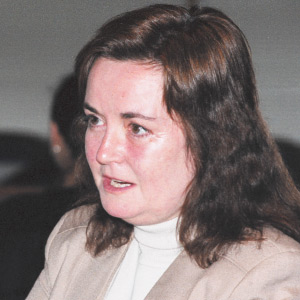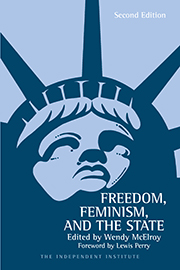Norma Khouri’s international best-seller “Honor Lost: Love and Death in Modern-Day Jordan” is an indictment of “honor killings”: the practice of killing women whose behavior has shamed the family. Khouri’s lifelong friend Dalia, a Jordanian Muslim, was murdered in Amman by her father for falling in love with a Christian.
Fearing for her life, Khouri fled Jordan to asylum in Australia. The sensation caused by the book is flawed by one thing—the story may be a lie from beginning to end.
An 18-month investigation of “Honor Lost” (titled “Forbidden Love” outside the U.S.) was conducted by the Australian Sydney Morning Herald and Amal Sabbagh—the Secretary-General of the Jordanian National Commission for Women.
On July 14, the resulting expose rocked the literary world.
Khouri’s book is riddled with factual errors as well as what Sabbagh called a general “lack of knowledge of Islam and of Jordan.” For example, the book refers to Kuwait as Jordan’s neighbor when the two countries share no border. It describes the Jordan River flowing through the capital of Amman when no such tributary exists. These are strange errors from someone who hails from Amman.
More damning was the revelation that Khouri had left Jordan at the age of three and lived in Chicago for almost 30 years.
Lying for fame and fortune is nothing new. The intriguing aspect is how our society has become so gullible as to gulp down claims of victimhood without pausing for evidence.
It could be argued that any book from a major publisher has automatic credibility. In Australia, where “Forbidden Love” became a runaway hit, Khouri was published by Random House. In America, the publisher of “Honor Lost” was Atria, an imprint of Simon & Schuster.
Publishers Weekly, a touchstone of publishing credibility, reviewed the book as, “The timeless tragedy of Shakespeare’s star-cross’d lovers ... [a] deeply affecting story of a Catholic man and a Muslim woman secretly in love in contemporary Jordan.”
The book’s acceptance by major publishers and reviewers merely highlights the original question: why does society no longer require evidence before believing almost any claim of victimhood?
Khouri’s hoax is a dramatic illustration of how harmful such gaping incredulity can be to real victims and honest dialogue. Malcolm Knox, Literary Editor of SMH, commented that Khouri “spent much of 2003 retelling this story, reducing listeners to tears and anger, in interviews, book festivals, bookshops and other events ... Khouri became a standard-bearer for oppressed Arab women and triggered a publishing trend of similar books.”
Meanwhile, Sabbagh—a woman who has fought on the front lines for the real victims of honor killings—stated: “We feel defamed by this book.” She feels defamed because Jordan has courageously opened up the topic of honor killings for global examination. Now the issue is being defined by sensationalized fiction, not reality.
Rana Husseini is an investigative journalist at the English-language newspaper Jordan Times. Husseini has written tirelessly against honor killings and must be credited with pulling the issue into the media’s spotlight.
Husseini has produced a list of 73 clear errors in “Honor Lost.” For example, Husseini writes, “She [Khouri] talks about a jury and we [in Jordan] don’t have juries; she talks about killers being bailed out, but killers are never bailed out in Jordan.”
Husseini is understandably resentful of Khouri. With courage and persistence, she has battled to spotlight a hideous crime against women: honor killings. Now a con artist seems to be distorting and exploiting the pain of murdered women.
The irony is heartbreaking. Jordan is one of the most “advanced” Arab nations; it leads the Muslim world in officially and publicly condemning honor killings. But now the world’s image of Jordan and its acknowledged problem has no relationship to those realities.
Why would the world allow a con artist to define an international issue? To put it quite simply, no one is willing to demand evidence. As a columnist, I routinely require evidence from alleged victims.
I do so without accusation or rancor simply because I think facts are essential before reaching a conclusion. Evidence is rendered more essential by two circumstances: 1) where there is a victim, there is also an accused who deserves the light of inquiry; 2) an open accusation is a public matter.
Accordingly, I initimately know one reason why probing questions are not asked. Those who ask them are automatically accused of vicious motives. If a reviewer had quizzed Khouri, she would have been accused of apologizing and enabling Islam’s violence against women. If the reviewer had been a “he” ... well, forget about it.
Emotional rhetoric replaces fact in virtually all reporting of victimhood. How could a request for evidence possibly compete with Khouri’s media spots which reportedly reduced “listeners to tears and anger”? The audience would have automatically lashed out at anyone who asked for such a presumptuous thing as substantiation.
The sad Khouri saga is not an indictment of honor killings. It is an indictment of how society has so fallen in love with victimhood that it took 18 months and an international effort to debunk a claim that should have immediately collapsed of its own weight. But, then, that would have required asking a question.









